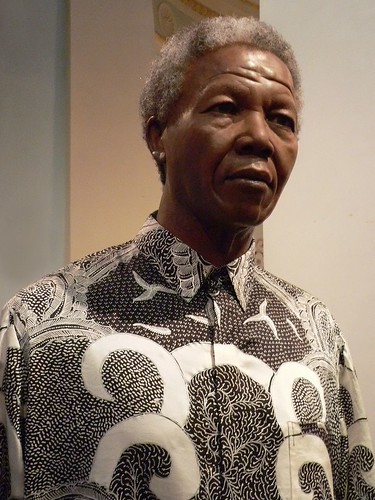Recently, we began a series here on my blog about the six tasks of catechesis, focusing on the notion that God is calling each of us to fulfill a role that he has planned for us. Just as actors rely on certain strategies to immerse themselves in character, we too rely on certain strategies to “immerse” ourselves in the role that God is calling us to fill: the “best version of ourselves” (to borrow a phrase from Matthew Kelly). We call these strategies the Six Tasks of Catechesis. Today, we look at task number 4: Teaching to Pray by looking at how actors practice the skill of “characterization.”
 Characterization – It is the job of an actor to bring a character to life. It is more than imitating or putting on a costume and makeup: the actor needs to play his or her character with truth and must embody the very soul and spirit of the character. Many actors talk about “channeling” a character. Directors advise actors to know their characters as well as they know themselves. When actor Morgan Freeman was cast in the role of Nelson Mandela for the movie Invictus, he took advantage of the opportunity to actually spend time with the legendary leader and former President of South Africa. As a result, film critic Bill Keller says that Freeman’s performance is “less an impersonation and more an incarnation.” (The Guardian, December 31, 2009) Interestingly enough, it was Mandela himself who invited Morgan Freeman to play the role. Freeman accepted but said, “I told him that if I was going to play him I was going to have to have access to him. That I would have to hold his hand and watch him up close and personal. The inner life has to come off the page.”
Characterization – It is the job of an actor to bring a character to life. It is more than imitating or putting on a costume and makeup: the actor needs to play his or her character with truth and must embody the very soul and spirit of the character. Many actors talk about “channeling” a character. Directors advise actors to know their characters as well as they know themselves. When actor Morgan Freeman was cast in the role of Nelson Mandela for the movie Invictus, he took advantage of the opportunity to actually spend time with the legendary leader and former President of South Africa. As a result, film critic Bill Keller says that Freeman’s performance is “less an impersonation and more an incarnation.” (The Guardian, December 31, 2009) Interestingly enough, it was Mandela himself who invited Morgan Freeman to play the role. Freeman accepted but said, “I told him that if I was going to play him I was going to have to have access to him. That I would have to hold his hand and watch him up close and personal. The inner life has to come off the page.”
Discipleship involves an inner life in order for the life to come off the page. In order for that to happen, we have to have access to the Master. Luckily, to follow Christ means to have access to him. Through prayer, we have direct access to the Lord whose life provides the pattern for the role we have been called to fulfill. Through prayer, we are able to “hold his hand and watch him up close and personal” as Freeman was able to do with Mandela. The result is not an impersonation of Jesus but an incarnation: Jesus taking on flesh through our own unique life and personality. And, just as Mandela invited Freeman to take on his role and then provided access to himself, Jesus invites each of us to become the person he knows we can be and provides us with complete access to himself so that we can incorporate his character into our own and become what God intends us to be: a unique reflection of himself.
Strategy #4: Take advantage of direct access – The message that the Divine Director is giving us at every point along the way is that, what we need to do is doable and it is doable because we do not have to do it on our own: he is accessible at all times to help us. At the heart of discipleship is regular access to the Divine Director through prayer. And don’t think that you have to get all formal at the sound of the word prayer. St. Ignatius taught that prayer should resemble one friend speaking to another. In our metaphor here, it should resemble an actor talking to a director in a relationship in which the actor is assured that the director has his or her best interests in mind. Prayer can take many forms, however, the best advice is to keep it simple: begin your day with prayer and end your day with prayer – short, open-ended conversations with the Divine Director about your efforts to fulfill your role according to his plan. By doing so, your entire day will take place within the framework of prayer and you will be well on your way to accomplishing St. Paul’s advice to “pray always” (Eph 6:18) which simply means that the conversation can continue on throughout the day in the same way that Tevye casually converses with God throughout the day in Fiddler on the Roof.
[photo courtesy of Mary Harrsch via Compfight]



Be the first to comment